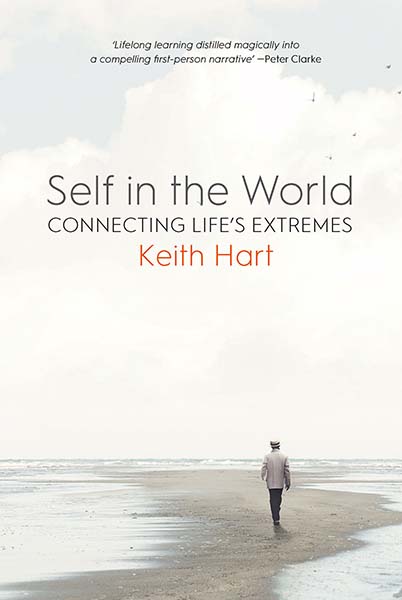“The book contains many jaw-dropping moments. These come from the author’s depth of insight on the brutal logic of globalized apartheid, for instance, or the role of modern universities as bureaucracies for managing national capitalism…Hilarious, sometimes devastating stories are recounted with wit alongside piercing summaries of intellectual works, historical episodes, and speculative, utopian hopes.” • History of Anthropology Review
“This is a work of great originality. Keith Hart has had an unorthodox academic career and it has liberated him in many ways from academic pieties. The book is full of surprises and mind-shifting observations. I actually couldn't put it down.” • Sherry B. Ortner
“For decades, Keith Hart has been our guide through the contradictions and cohabitations that help us become what we are—human, whatever that may come to mean. This remarkable memoir takes the reader on a life’s journey with a purpose and passion to do nothing less than reorganize how we think in and on the world. This is a profoundly hopeful text.” • Bill Maurer
“Here is a fat sandwich with a rich filling that tells his own story as no other anthropologist could: a streetwise journey from Manchester to Paris via Cambridge and a dozen other key locations worldwide. To call it picaresque risks giving the Picaroon pirates a bad name. The young Hart made his name with self-consciously scholarly works where “I had to convert all my stories into the third person”. Now he does the opposite and we get lifelong learning distilled magically into a compelling first-person narrative.” • Peter Clarke
“Keith Hart’s Self in the World is the story of a brilliant and sometimes troubled individual, one of the most creative intellectuals of the last 50 years. It is also a story of anthropology as an intellectual project and vocation; of Africa, anti-colonial struggle, and digital revolution; even of life in Manchester, Paris, and Durban. It is moving, informative, engaging and, indeed, important.” • Craig Calhoun
Eminent anthropologist Keith Hart draws on the humanities, popular culture and his own experiences to help readers explore their own place in history.
We each embark on two life journeys – one out into the world, the other inward to the self. With these journeys in mind, anthropologist, amateur economist and globetrotter Keith Hart reflects on a life of learning, sharing and remembering to offer readers the means of connecting life’s extremes – individual and society, local and global, personal and impersonal dimensions of existence and explores what it is that makes us fully human.
From the introduction:
People have many sides, but I will focus here on two. Each of us is a biological organism with a historical personality that together make us a unique individual. But we cannot live outside society which shapes us in unfathomable ways. Human beings must learn to be self-reliant (not self-interested) in small and large ways: no-one will brush your teeth for you or save you from being run over while crossing the street. We each must also learn to belong to others, merging personal identity in a plethora of social relations and categories. Modern ideology insists that being individual and mutual is problematic. The culture of capitalist societies anticipates a conflict between them. Yet they are inseparable aspects of human nature.
Keith Hart’s (1943-2025) research was on economic anthropology, Africa, money and the internet. He contributed the concept of informal economy to development studies. His books include The Memory Bank: Money in an Unequal World (Profile, 2000) and the edited volume Money in a Human Economy (Berghahn, 2017). He taught on four continents and co-founded the Human Economy Programme in Pretoria.
Area:
LC: GN25 .H375 2022
BL: DRT ELD.DS.674602
BISAC: SOC002010 SOCIAL SCIENCE/Anthropology/Cultural & Social; BIO021000 BIOGRAPHY & AUTOBIOGRAPHY/Social Scientists & Psychologists; SOC026040 SOCIAL SCIENCE/Sociology/Social Theory
Related Video


